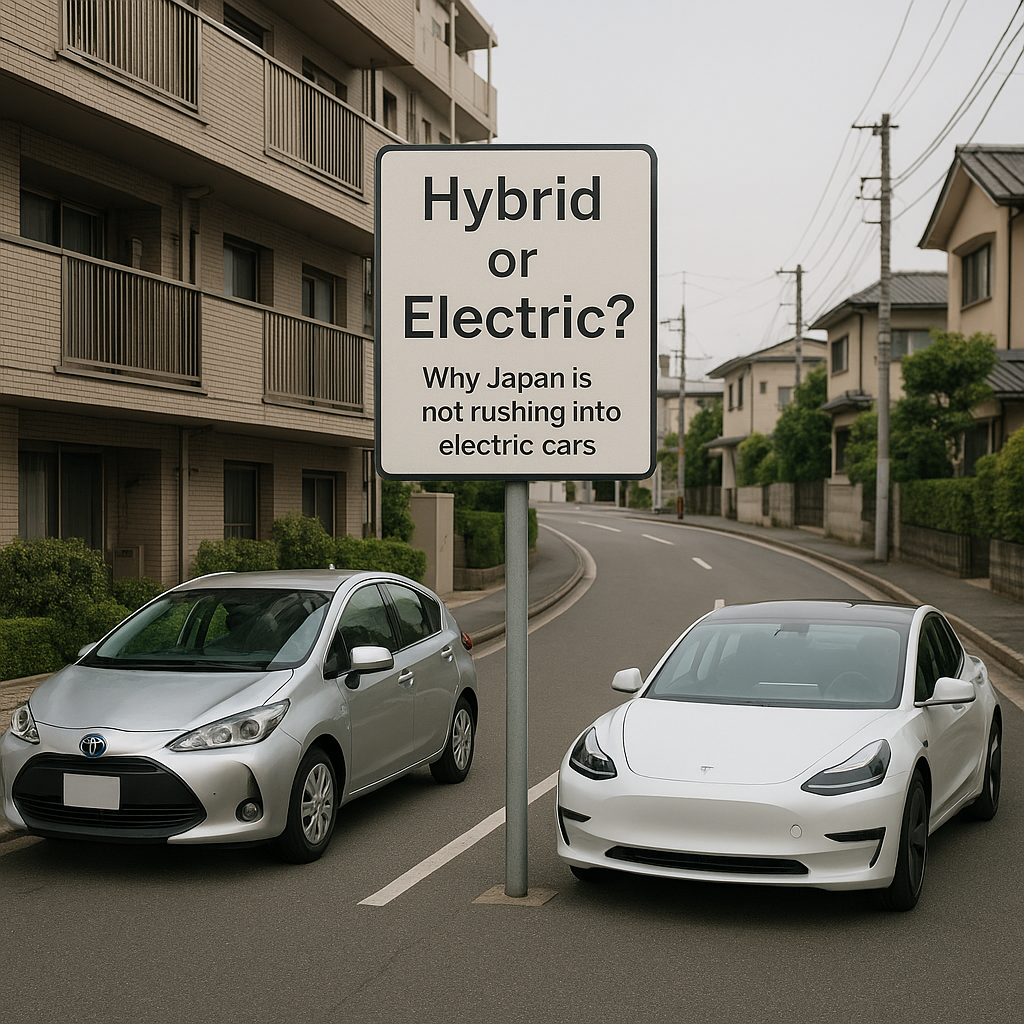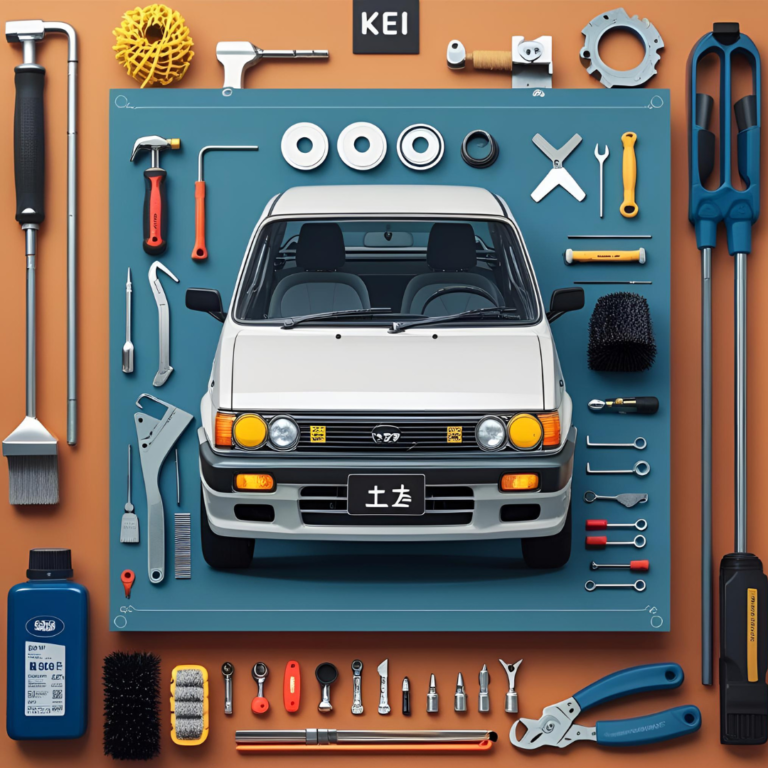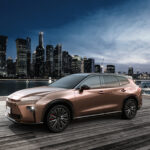Japan And Automobile News
Stay updated with the latest automotive trends, new car models, and technology from Japan!
Why Japanese People Don’t Love Electric Cars Like Europeans Do?

If you’re a foreigner living in Japan, you may have wondered:
“Why don’t Japanese people drive electric cars (EVs) as much as in Europe or other countries?”
That’s a smart question — and the answer is not just about technology, but also about culture, lifestyle, and even natural disasters.
Let’s break it down 👇
1. 🚗 Japan Already Loves Hybrid Cars
Japan is the home of hybrid cars like the famous Toyota Prius. These cars use both gasoline and electric power — and they’ve been around for over 20 years.
Japanese drivers trust hybrids and believe they are already eco-friendly.
Many people feel, “Why switch to a full electric car when my hybrid works just fine?”
2. 🏠 People Don’t Drive Long Distances
Most people in Japan use their cars for short trips — to the station, supermarket, or daycare.
Japan has great trains and buses, so many people don’t need a car every day.
Small cars like kei cars are cheap, fuel-efficient, and easy to park — perfect for Japanese cities.
So full EVs feel like more than they need.
3. ⚡ Charging Is Still a Problem
Electric car charging stations are not everywhere in Japan.
Many people live in apartments (called “mansions”) with no space to charge a car.
Public charging stations are growing, but not as fast as in Europe.
4. 🌪️ Natural Disasters Make People Cautious
Japan has earthquakes, typhoons, and blackouts. In those situations:
Gasoline cars and hybrids can be refueled easily.
But electric cars need power — and that can be risky if the power is out.
Many Japanese prefer to play it safe.
5. 💰 EVs Are Expensive and People Worry About Batteries
EVs cost more upfront than gasoline or hybrid cars.
People worry about the battery life and the cost to replace it after several years.
Resale value of EVs is also unclear in Japan.
So, for many people, EVs feel like a financial risk.
6. 🧠 Japanese Car Buyers Are Careful
Japanese people tend to be very cautious shoppers. They don’t rush to buy the newest thing.
They wait to see if the technology is reliable and long-lasting.
Since Japanese car companies like Toyota were slow to release EVs, most buyers didn’t see them as a must-have.
7. 🏛️ Government Support Was Focused on Hybrids
For many years, the Japanese government gave more support to hybrids than electric cars.
But that is now changing. EV support is slowly increasing, and big companies like Toyota, Nissan, and Honda are finally releasing more electric cars.
✅ So, Will Japan Catch Up?
Yes — but slowly. Japan is changing its policy, and more EVs are coming. But for now, hybrids and small gasoline cars still rule the roads.
💡 Final Thought
If you’re thinking about buying a car in Japan, remember:
EVs are great, but not always the most convenient option here — especially if you live in an apartment or drive short distances.
Hybrids or kei cars might still be the better choice for daily life in Japan.
👉 Share this with your foreign friends in Japan who are also confused about this topic!
News

🚗 New to Cars? Here’s the Only Car Maintenance Guide You’ll Ever Need!
Owning a car is exciting—but it also comes with responsibility. If you’re new to cars, or don’t know much about how they work, don’t worry. Taking care of your vehicle doesn’t require you to be a mechanic. Just follow this simple guide and your car will stay healthy, safe, and ready to take you anywhere.
🛢️ 1. Check Your Oil – It’s the Car’s Blood!
Oil keeps your engine running smoothly. But over time, it gets dirty and loses its power.
What to do:
Open the hood and pull out the oil dipstick.
Wipe it, put it back, then pull it out again to check the level and color.
If the oil is too low or black and dirty, it’s time to change it.
Do this check once every 2–4 weeks.
🛠️ Bonus Tip: Even if you don’t drive much, oil still ages. Change it every 6 months or 5,000–7,000 km.
🔋 3. Don’t Get Stuck with a Dead Battery
Car batteries usually last 3 to 5 years. Cold weather, short trips, or old age can kill them.
How to protect your battery:
Check for white or green powder around the battery terminals – clean it with baking soda and water.
If your car starts slowly, have your battery tested. Many shops do it for free.
News

🚨 How Donald Trump’s Tariff War Is Shaking Up Japan’s Car Industry – And What It Means for You
By Hiroshima Cars News Team
If you’re working in a car factory in Japan or love driving Japanese cars, here’s something you should keep an eye on: Donald Trump is back in the headlines—and this time, his tough stance on trade could hit Japan’s auto industry harder than ever.
So what’s going on, and why should you care? Let’s break it down.
 Why Did Trump Go After Japanese Cars?
Why Did Trump Go After Japanese Cars?
Back when Donald Trump was president (2016–2020), he believed that the U.S. was losing in global trade—especially with countries like China, Germany, and yes, Japan. He claimed Japan was sending too many cars to the U.S., while American car companies struggled to sell their vehicles in Japan.
News

